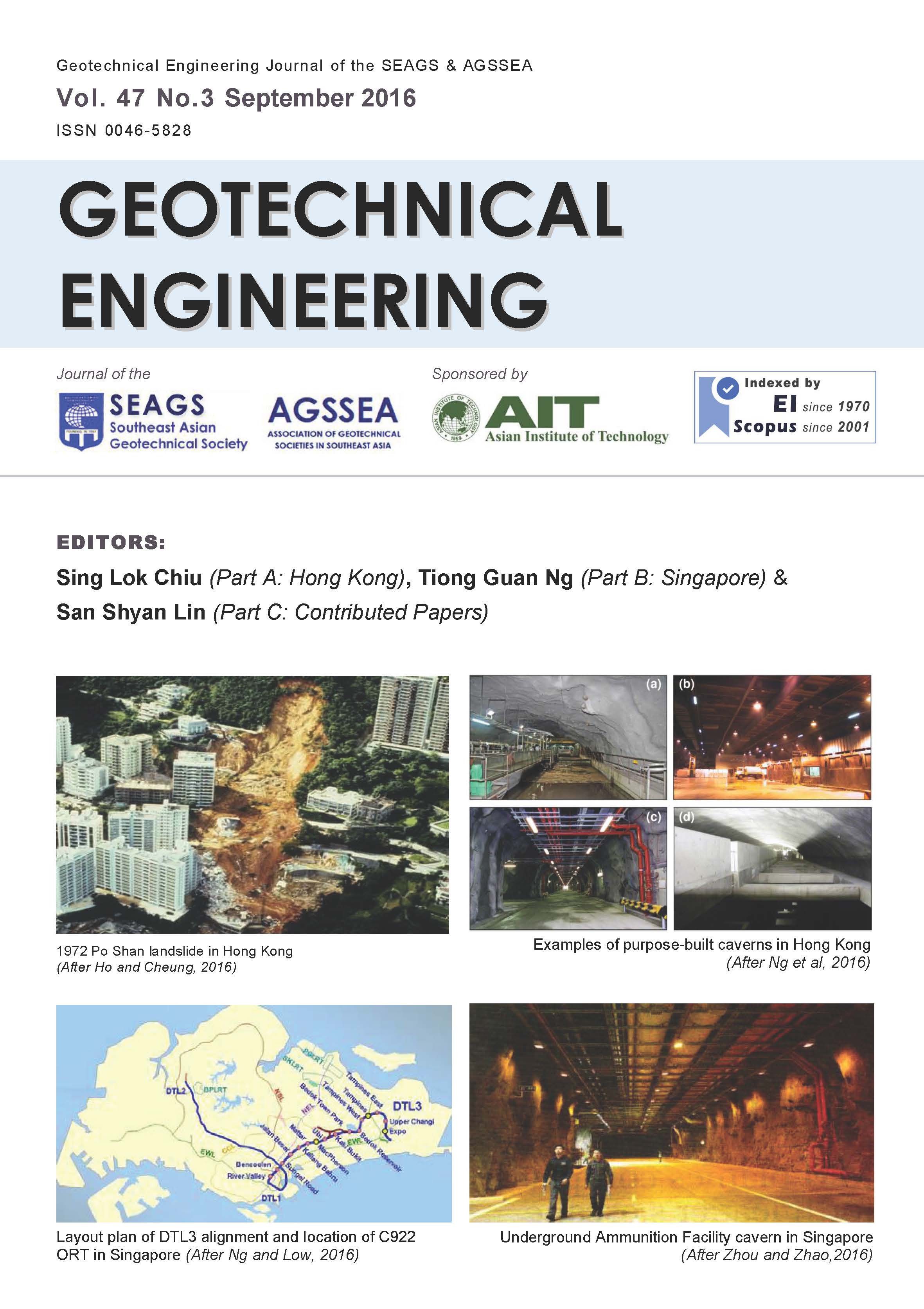Role of Bentonite in Improving the Efficiency of Cement Grouting in Coarse Sand
Main Article Content
Abstract
Grouting generally is used to fill the voids in the ground (fissures and porous structures) with the aim of increasing resistance against deformation, to increase cohesion, shear strength and uniaxial compressive strength or finally (even more frequently) to reduce conductivity and interconnected porosity in an aquifer. In the case of loose sandy soils, the very low bearing capacity of the foundation bed causes shear failure and excessive settlements. Cement grouting technique is one of the possible solutions to the foundation problems for improving the properties of soil at shallow depths. Various authors have recommended a number of additives that can be used in cement grouting. Admixtures like antibleeder increases viscosity of the cement grouts, at the same time reducing sedimentation to a considerable extent. Bentonite can be considered as a cheap and effective admixture for cement grouts with regard to stability. This paper presents the results of experimental studies conducted in the laboratory, in this direction. It was found that addition of small percentages of bentonite and detergent increases the lateral flow of cement grout in coarse sand. The results clearly indicate that addition of even a small amount of bentonite to the cement grout increases the grouting efficiency in coarse sand.
Article Details

This work is licensed under a Creative Commons Attribution-NonCommercial-NoDerivatives 4.0 International License.
Copyright © 2019 Association of Geotechnical Societies in Southeast Asia (AGSSEA) - Southeast Asian Geotechnical Society (SEAGS).


